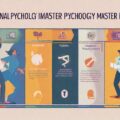Introduction to Consciousness
Consciousness is one of the most fascinating and complex topics in psychology. It refers to the state of being aware of and able to think about one’s own existence, thoughts, and surroundings. Despite its central role in human experience, consciousness remains a deeply mysterious and debated concept.
Definition of Consciousness
In psychological terms, consciousness is often defined as the quality or state of being aware of an external object or something within oneself. It encompasses a variety of experiences, including sensory perception, thoughts, feelings, and self-awareness. According to Merriam-Webster, consciousness is “the quality or state of being aware especially of something within oneself.”
Theories of Consciousness
Several theories attempt to explain the nature of consciousness:
- Dualism: Proposed by René Descartes, dualism suggests that the mind and body are separate entities that interact with each other.
- Materialism: This theory posits that consciousness arises entirely from physical processes within the brain.
- Functionalism: This perspective views mental states in terms of their function rather than their composition, suggesting that consciousness can be understood by examining the roles mental states play in cognitive processes.
- Integrated Information Theory (IIT): Proposed by Giulio Tononi, IIT suggests that consciousness is a product of certain kinds of information processing.
Quotes on Consciousness
Here are some thought-provoking quotes about consciousness:
“The mind is everything. What you think you become.” – Buddha
“Consciousness is the greatest movie you will ever see.” – David Eagleman
“The only real voyage of discovery consists not in seeking new landscapes, but in having new eyes.” – Marcel Proust
“The greatest achievement was at first and for a time a dream. The oak sleeps in the acorn, the bird waits in the egg, and in the highest vision of the soul, a waking angel stirs.” – James Allen
The Role of Consciousness in Psychology
In psychology, consciousness is crucial for understanding human behavior and mental processes. It allows individuals to reflect on their thoughts, plan for the future, and make decisions. Researchers study various aspects of consciousness, including:
- Self-awareness: The ability to recognize oneself as an individual separate from the environment and other individuals.
- Attention: The process of selectively focusing on specific stimuli while ignoring others.
- Altered states of consciousness: Different mental states, such as sleep, meditation, or the influence of substances, which can alter the normal experience of consciousness.
Consciousness and Neuroscience
Recent advances in neuroscience have shed light on the biological underpinnings of consciousness. Researchers use techniques like functional magnetic resonance imaging (fMRI) and electroencephalography (EEG) to study brain activity associated with conscious experiences. Findings suggest that specific brain regions, such as the prefrontal cortex and the thalamus, play critical roles in conscious awareness.
FAQ
What is the simplest definition of consciousness?
Consciousness is the state of being aware of and able to think about one’s own existence, thoughts, and surroundings.
What are the different levels of consciousness?
Levels of consciousness can range from full awareness and wakefulness to various altered states, such as sleep, meditation, and unconsciousness.
How do psychologists study consciousness?
Psychologists study consciousness through various methods, including introspection, behavioral experiments, and neuroimaging techniques like fMRI and EEG.
What is self-consciousness?
Self-consciousness refers to the awareness of oneself as an individual, including one’s thoughts, feelings, and behaviors.
Can consciousness be measured?
While consciousness itself is subjective, researchers use various tools and techniques to measure brain activity and behavioral indicators associated with conscious experiences.









